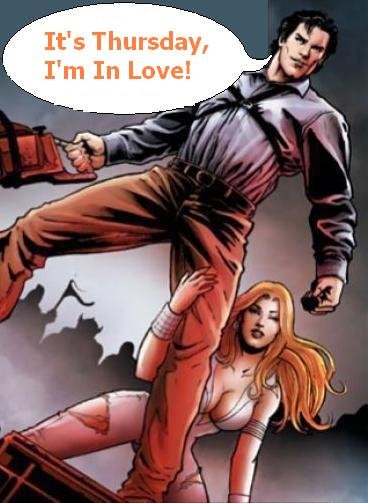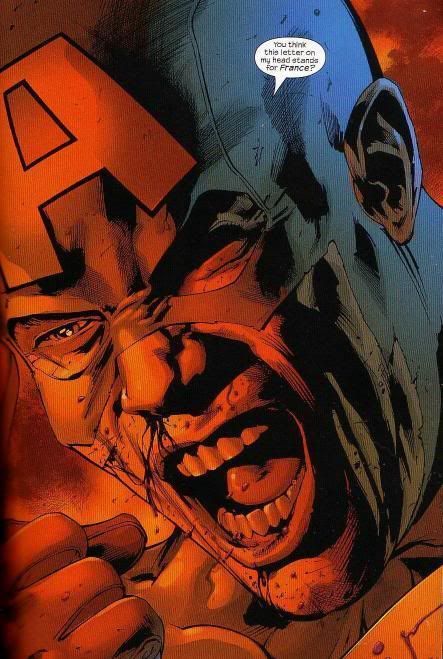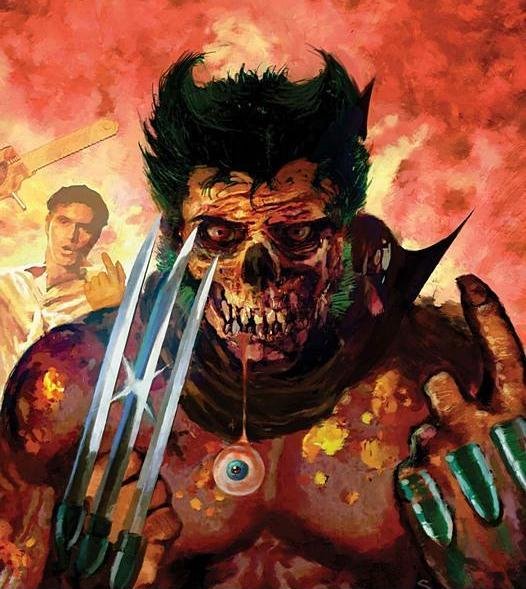TV Q&A: TIM KRING
The ‘Heroes’ creator talks about Season 2’s missteps, how the writers’ strike changes the show and the secrets revealed at the end of Vol. 2
By Kiel Phegley | Posted November 12, 2007 11:05 AM |
When it comes to NBC’s “Heroes,” the show must go on—at least through December.
Although the Writers Guild of America’s strike over DVD and new media revenue has put production of the network’s scripted series to a halt, the powerhouse Monday night series has enough episodes completed to last though the holidays and through its Volume 2 finale. And while the early episodes of the “Generations” arc have drawn some sharp criticism from fans online, series creator Tim Kring has been talking candidly about the state of the show while he and the rest of his writing staff are on strike. In anticipation of this week’s episode, which sees the characters on “Heroes” flash back to the time before Season 2 began, Kring talks about why the season’s detractors should wait before casting their final vote, reveals how the writer’s strike will affect the story’s future and compares himself to a crack dealer in terms of connecting with his audience.
WIZARD: There’s this little interview that you did on Entertainment Weekly’s website that was e-mailed around endlessly last week. You talked about the pacing of the show coming into Season 2 and the fan reaction, but it seems that the upcoming episodes are going for more of that bang that people have been missing.
Is it easier as a writing staff for you guys in that you don’t have to worry about fan reaction until you’ve had some done and gotten your own creative juices flowing?
KRING: The worst thing that can happen is to start saying, ”I wonder if the audience would like this? Maybe the audience would like this.” We never did that last year. Not one time did we do that. We never said, “I think the audience would like this.” We didn’t think in those terms, and it’s a very dangerous thing on a show to start backing into story based on what you think the audience is going to like. The truth is that there’s chocolate and vanilla and there’s strawberry. Everybody likes something different. So all you can do is make the show that you want to make and hope that your tastes are general enough that you’re going to get a lot of people who also like it. It’s a very complicated relationship to have with an audience. In looking back I think there were a couple of missteps. The biggest, and I think it could’ve been solved with really one thing, which is had we had Peter teleport to the future and see the devastation of the world because of this virus, then everything would’ve been filtered through that. Then when you met Maya and Alejandro and you realize that Maya can excrete a plague then you would go, “Oh, I see how that’s going to connect.” But now you’re watching it disconnected and wondering why.
The truth is, listen, this time last year people were scratching their heads and wondering what the show was about and wondering where it was going. We built exactly the same pace last year, exactly. People were saying, “When are these people going to get together?” Well, we got them together in episode 9, believe it or not, last year. Episode 9 is where they finally came together, and then we had to tear them apart because you can’t tell story once they’re all together. So it’s a real balancing act. In many ways we made many, many, many more mistakes and missteps in the first season than we did in this season. This is much tighter storytelling, and I think more efficient storytelling. It’s just that we’re not brand new anymore. Listen, if you sit down to watch your favorite movie 14 times on DVD, by the 15th time you say, “I wonder why this movie isn’t as funny as it was when I first started watching it. Why isn’t it as exciting as the first time I saw this movie?” That’s just the nature of making a television show. It’s not shiny and new ever again. So you have to sort of recalibrate what your experience is going to be as a viewer.
Monday’s episode “Four Months Ago” brings back the popular trick of revealing bits of character by stepping back in time, specifically to the events that occurred between Seasons 1 and 2. Do you expect that to deliver a bit more of what fans have asked for?
Thinking then about the stuff we’re going to be seeing tonight and beyond, the Company has been so much more involved this season in so many more ways. The two fronts we’ve been seeing the fight go on are what’s happening between HRG and Claire and the virus storyline which seems to have been touching so many different people.
KRING: Those things all coming to a head in basically 7, 9, 10 and 11. Eight is a departure episode because it’s four months ago, but it fills in those things as well. Clearly in 7, 9, 10 and 11 those stories converge. Again, not to sort of make an excuse about this, but you are rewarded for having watched all these things. They do have greater meaning because of all the information that you have, and that information obviously takes several episodes to do. The payoff of what happens in episode 9 with Claire and her dad would not be as powerful if you hadn’t seen them go through all the things that they’ve gone through so far.
HRG as a character is the best example of an aspect of the show where half of the time you see a character or the Company or the plotline and you think you know what it is. Then weeks later it flips again and you don’t know if you can trust it anymore. By the end of Volume 2, will people have a definitive feeling of what to root for and what not to root for, or is it still going to be a kind of gray area where we’ll still be riding that tension?
The finale of Volume 2 is one thing in regards to the strike that will work in your favor, but how can you compare the strike experience now to the last strike in ’88? You were writing both for movies and in television during that time. Do you have specific memories of the strike then as compared to now?
KRING: Well, the truth is that I was in a very, very different position. I obviously was not employing 400 people and I didn’t have a wife and children and I didn’t have a mortgage and so I was much less personally—I had much less at stake in the last one. For me the last one was oddly benign. I wrote a spec script, and I sold that spec script when the strike was over, and I was a freelance writer who worked out of my apartment anyway. So I didn’t have the shock of my office locked up and not having the ability to go to work. To me, it was a very, very different strike. I was in a very different place in my career. I can’t, in a personal way, compare the two.
So after the strike, whether it’s short or long, you’re going to go right back into the show, but for now are you running around trying to make sure that your staff is finding their own way and playing father to everything “Heroes,” even though you’re not in the office?
KRING: Yes, exactly. Last night I cooked dinner for the whole staff because I’ve vowed to at least feed them. I’m trying, as much as I can, to be a voice of moderation because I really do believe that while there is militancy on both sides of this issue, that’s not where a strike is going to be settled. It’s going to be settled somewhere in the middle, and those voices need to start to emerge. Right now it’s literally—the shock has really been felt by everybody. When you suddenly go from the adrenaline of making a show, making a big show, a big expensive show, a big hit show—when you go from that to literally standing on a corner holding a sign all day long, that’s a very hard left turn for us to make and very surreal. So it’s just the first few days of this, and everybody is literally in a kind of surreal shock right now over it. I think the strike has hit much harder all around town than anyone thought it was going to in terms of the kind of dread and depression that set in as soon as it hit. The fact that it went on for five months last time is really giving everyone pause.
I don’t think it’s going to be an afterthought at any point soon.
KRING: Yeah, no. I’m still actually, strangely, very optimistic for this thing to get resolved fairly quickly. That’s not based on any inside knowledge at all. It’s really just based on the idea that I believe it’s so devastating to the business that something has to give. I don’t know that either side really has the wherewithal to have it last for that long.



No comments:
Post a Comment